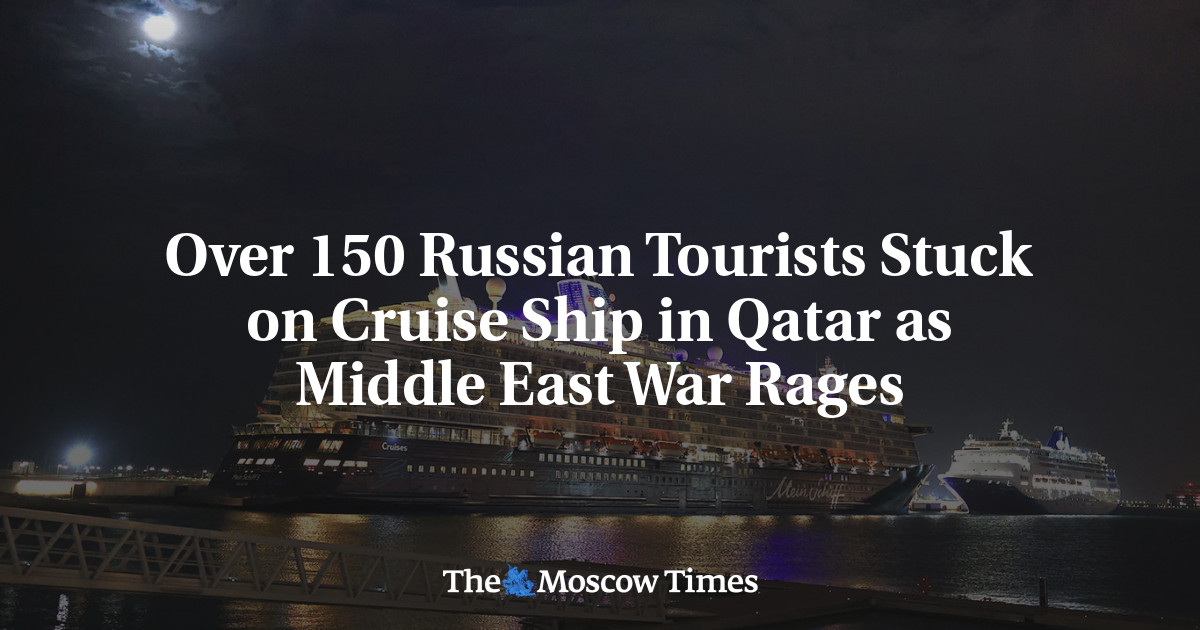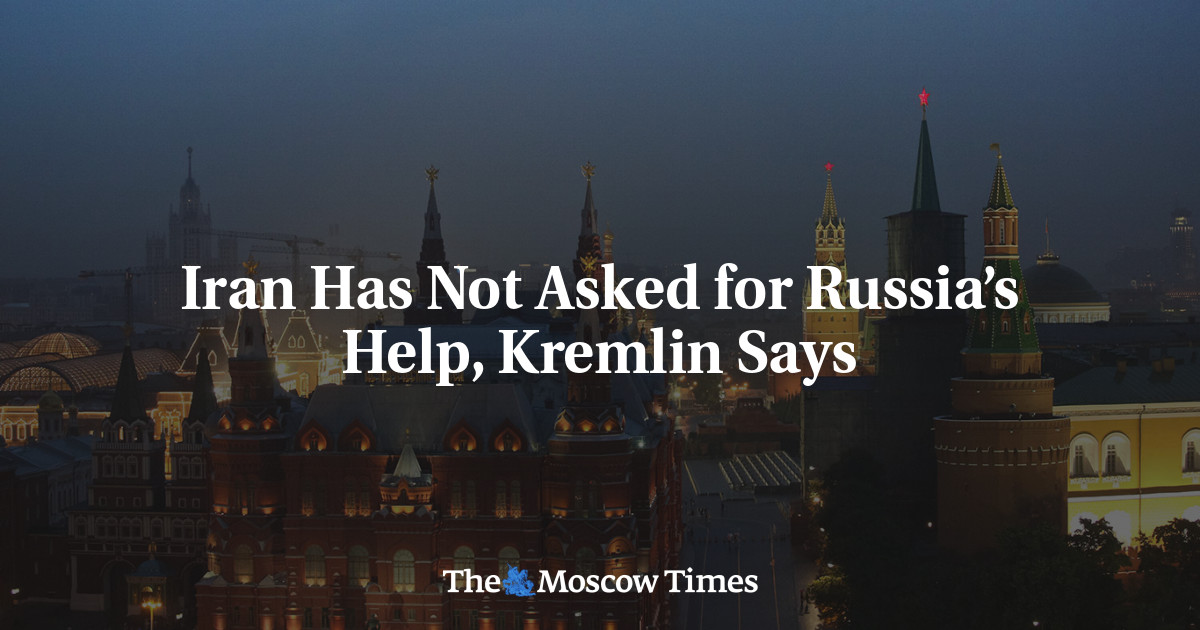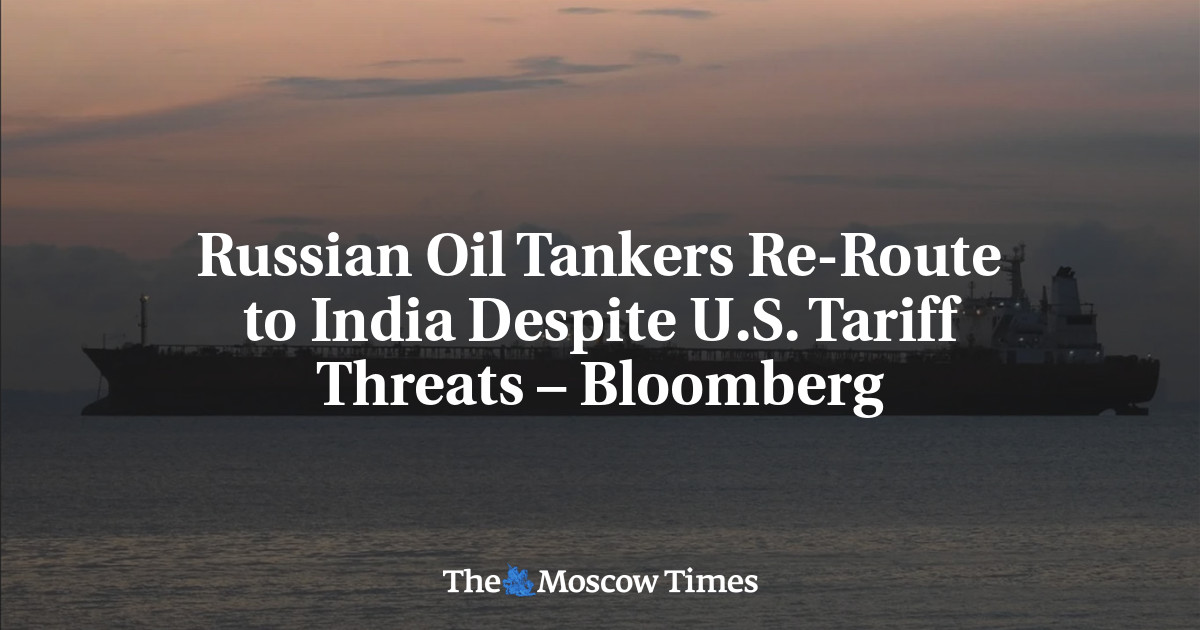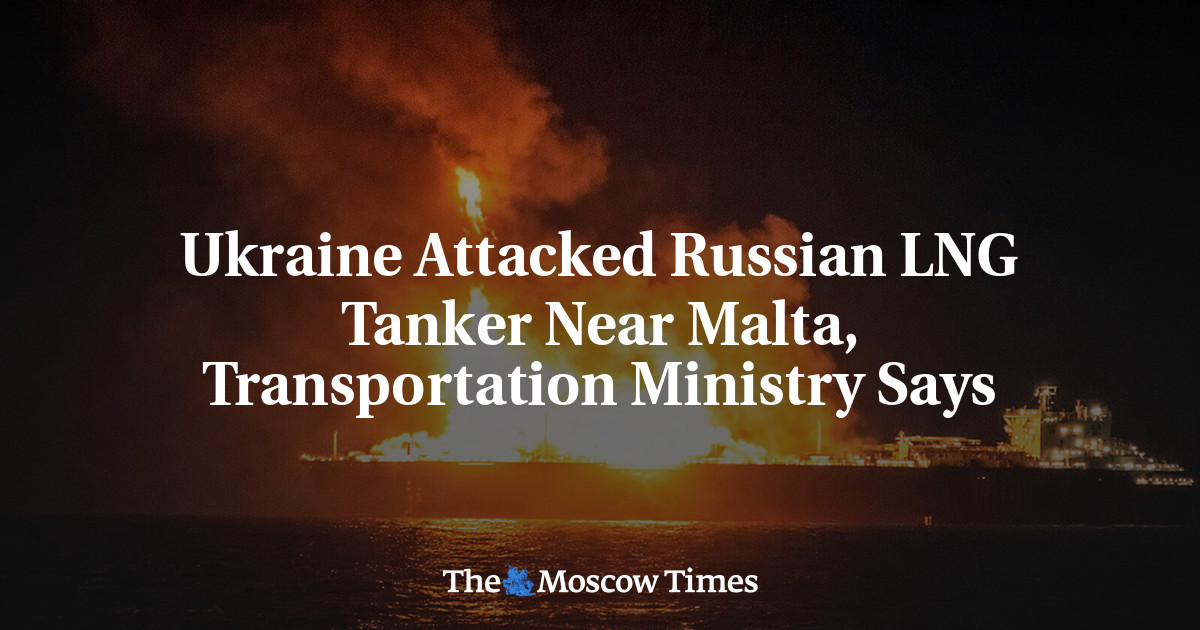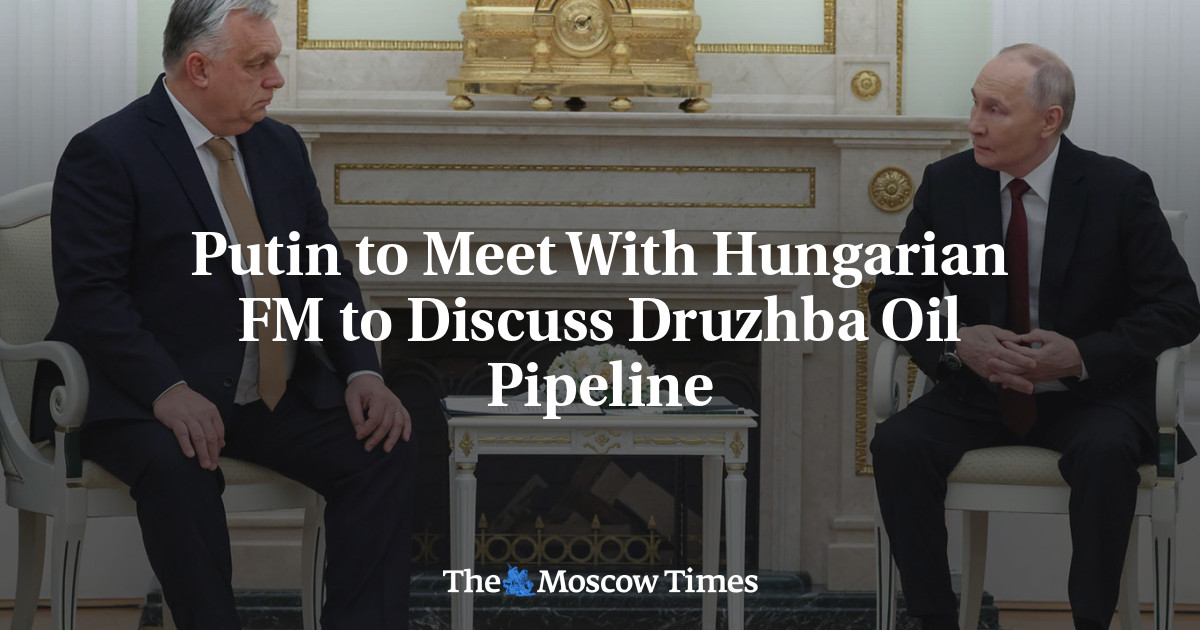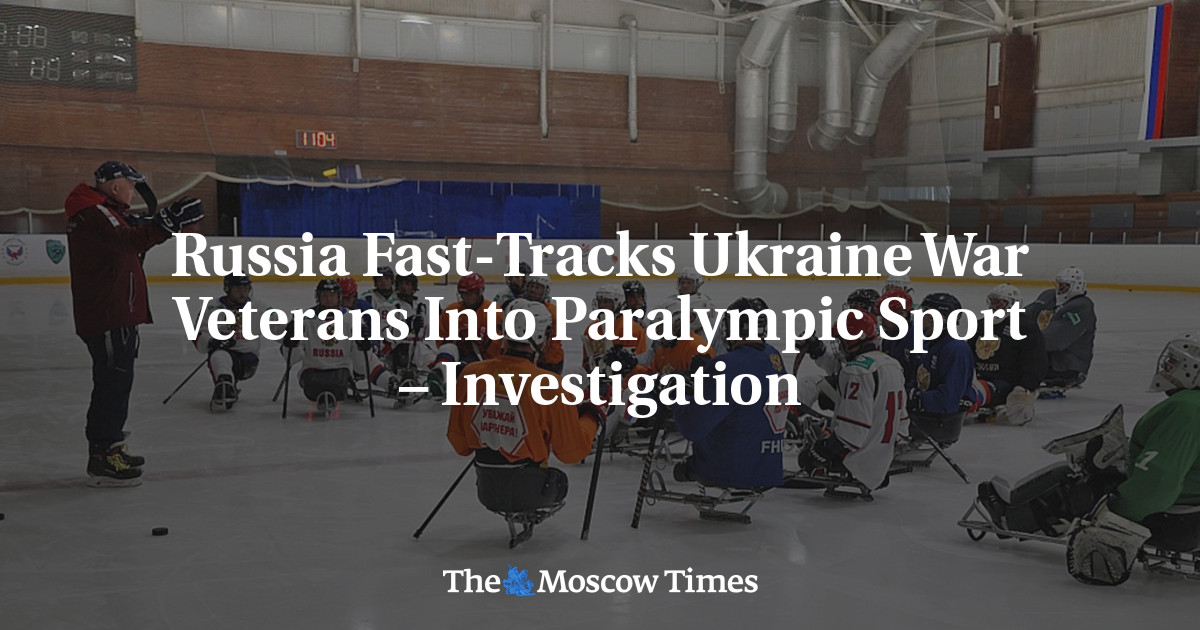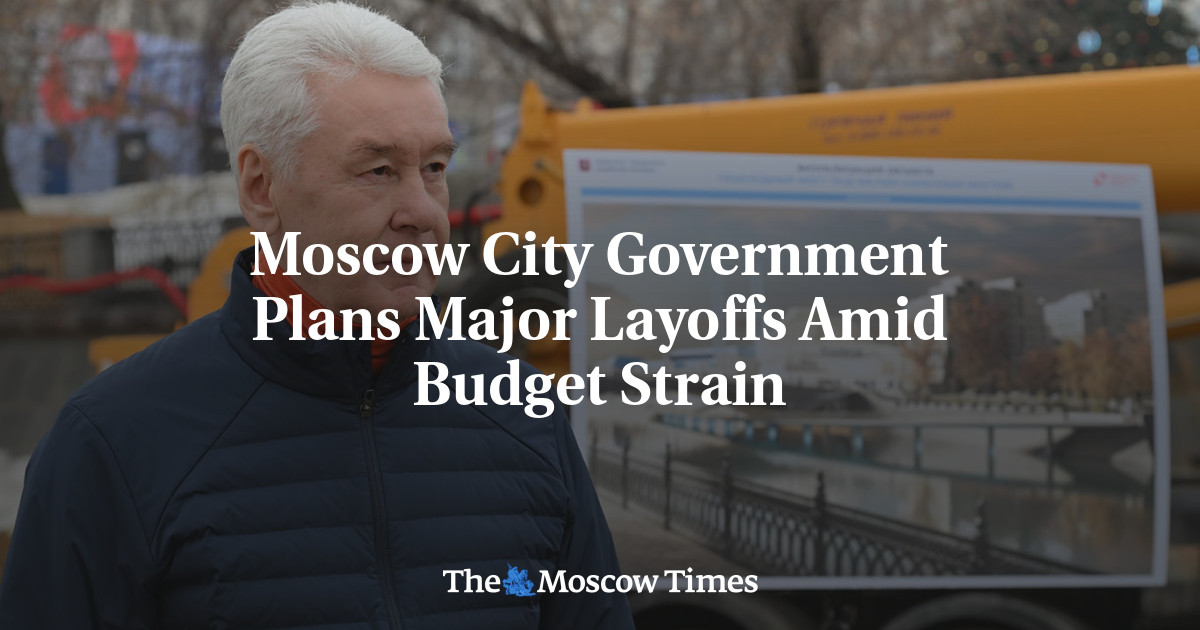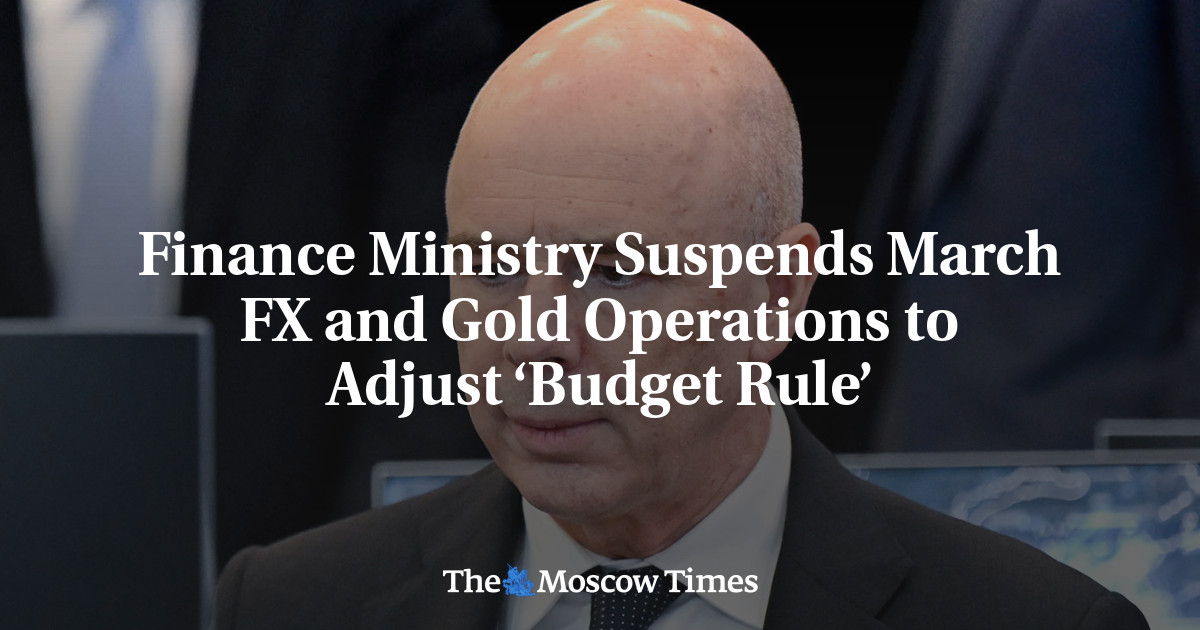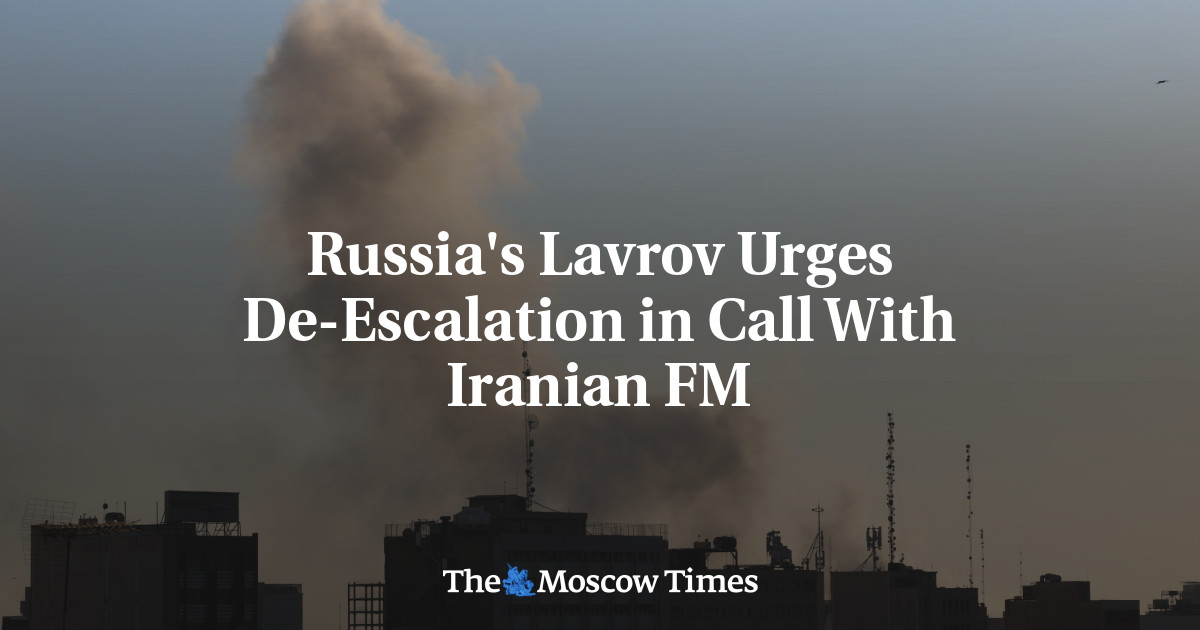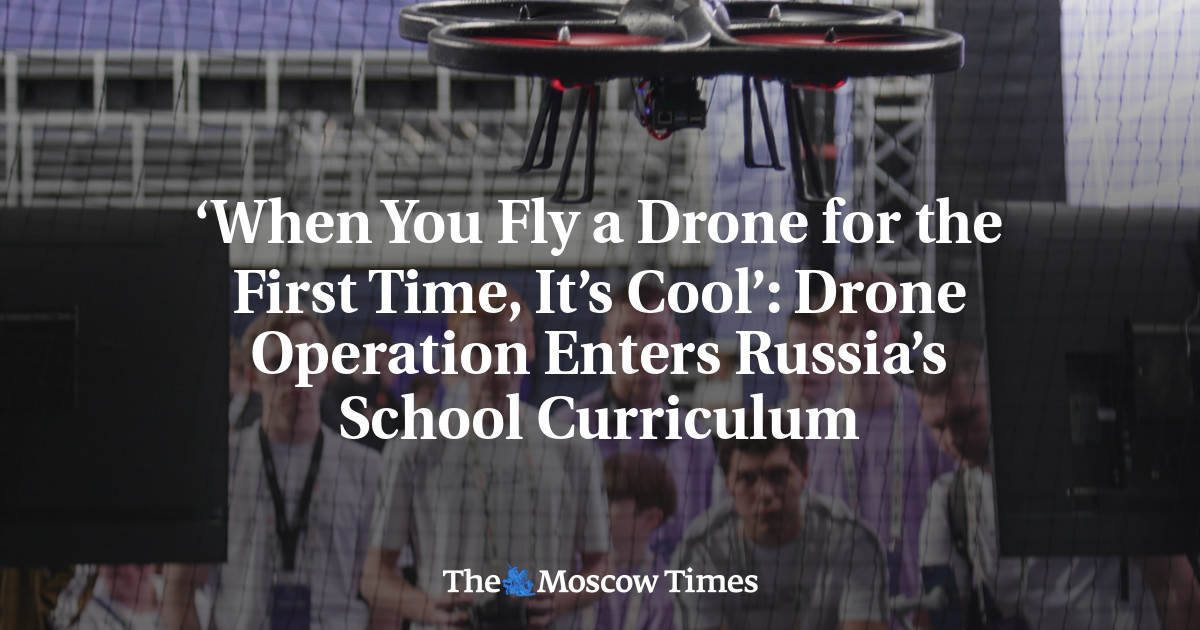When Sviatlana Tsikhanouskaya speaks about Belarus today, she begins with a clarification: “We cannot talk about Belarus as a unified entity — we must separate the [Alexander] Lukashenko regime from the Belarusian people.”
Five years after she was forced into exile following her run in the 2020 presidential election, a campaign that inspired historic pro-democracy protests, Tsikhanouskaya continues to challenge Lukashenko’s rule from her base in Lithuania.
In an interview with The Moscow Times, she warns that with Russia’s war in Ukraine, Russian troops and nuclear weapons stationed in Belarus and ongoing provocations along Europe’s borders, the West can no longer afford to ignore Belarus — for the sake of its own security.
Tsikhanouskaya is also working to raise awareness of Belarus’ ongoing repressions. While Minsk released several dozen political prisoners this year — including her husband, opposition leader Siarhei Tsikhanouski — at least 1,240 people remain behind bars, according to the human rights group Viasna.
Yet even under what she calls “Stalinist-level repression,” Tsikhanouskaya insists that resistance persists, both inside the country and among the hundreds of thousands of Belarusians now living in exile.
The Moscow Times: How do you assess Belarus-Russia relations in 2025?
Sviatlana Tsikhanouskaya: First of all, we cannot talk about Belarus as a unified entity right now — we need to distinguish between the Lukashenko regime and Belarus itself, because the Lukashenko regime is completely loyal to Putin. Putin and Lukashenko share a symbiotic friendship, they need each other at this moment and use each other. For Putin, Lukashenko is a very cheap ally who, in exchange for political and some minor economic support, provides territory, infrastructure and anything else Russia might need for its purposes.
As for the Belarusian people, especially after the start of the war in Ukraine, they have clearly made a geopolitical choice toward Europe. It has become obvious that Belarusians cannot identify with Russians, as Belarusian propaganda has always suggested. It has become clear that we do not share imperial ambitions and we cannot understand how anyone could go to war, take up arms against neighbors. It is evident that Russia, or at least the Russian leadership, is interested in swallowing up more and more countries, subordinating them, having satellites and wants everyone around to be like Lukashenko — convenient, loyal allies who follow orders but do not act in the interests of their own republics or countries.
That is why there is now internal resistance among Belarusians, both inside Belarus and abroad, against this integration, because Lukashenko is effectively selling our sovereignty and independence in exchange for his own power. Without Putin, he would have been gone within a few days. We must also understand that the ongoing process of russification in Belarus is not in the interest of the Belarusian nation or national identity — it is a form of subordinating the country. There is a very real threat that Russia, using the loyal Lukashenko, could completely absorb Belarus economically, politically and in the media sphere — essentially what we are seeing now.
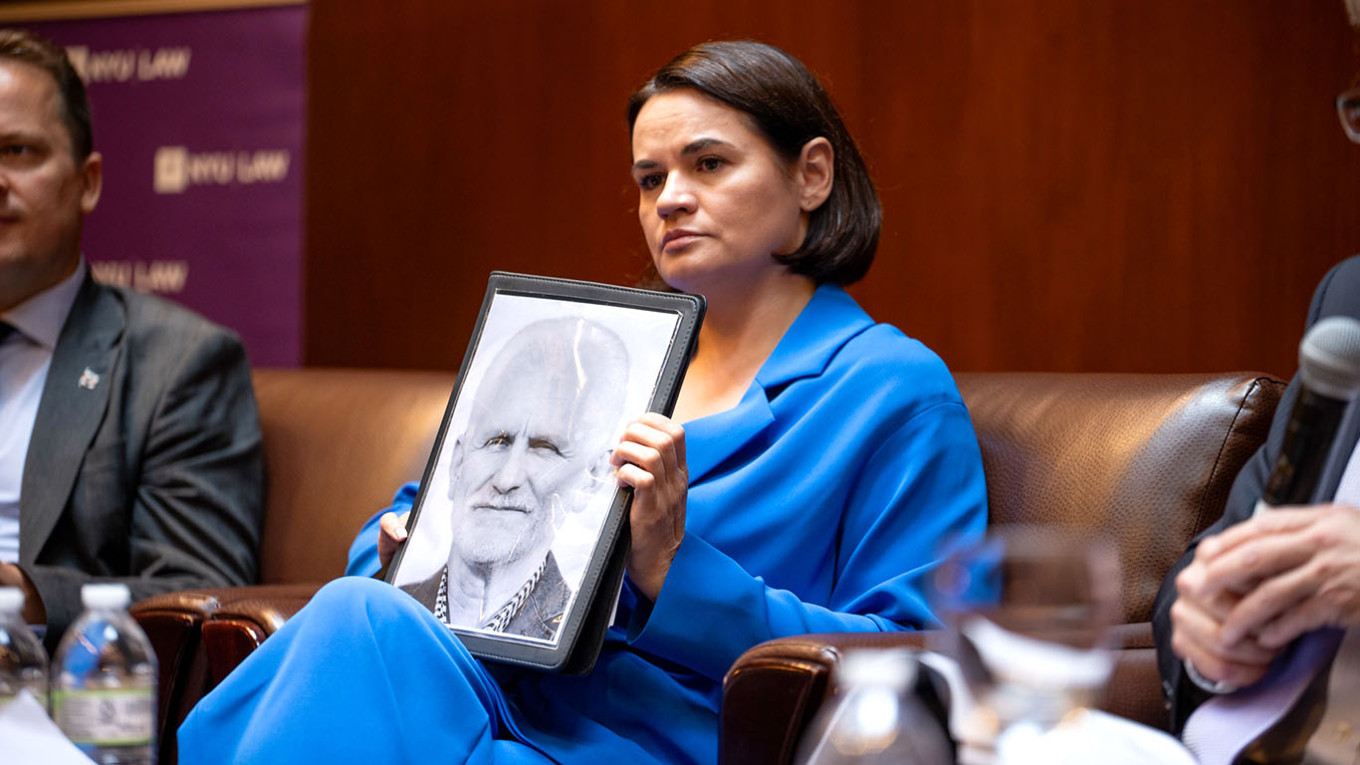 Sviatlana Tsikhanouskaya holds up a portrait of Nobel Peace Prize-winning Belarusian human rights activist and political prisoner Ales Bialiatski during an event at NYU Law School.
Sviatlana Tsikhanouskaya's Office / flickr
Sviatlana Tsikhanouskaya holds up a portrait of Nobel Peace Prize-winning Belarusian human rights activist and political prisoner Ales Bialiatski during an event at NYU Law School.
Sviatlana Tsikhanouskaya's Office / flickr
How do Belarusians themselves feel about this integration process?
The situation is such that the level of repression in Belarus is so high that no one will speak publicly about it. Right now, if you are anti-Lukashenko, against the [Ukraine] war or say ‘stop the war,’ you risk years in prison. This is, frankly, Stalinist-level repression. There’s no other way to describe it. Unfortunately, Belarusians are currently in a kind of ‘safe mode,’ operating somewhat underground and there are no anti-Russian articles in the media because it is simply not allowed. But in talking with Belarusians, we understand and feel that people do see the crimes of Lukashenko in surrendering Belarus’ sovereignty. We know from conversations with officials that even among them, resentment is growing — Lukashenko has gone too far in giving up Belarusian independence. People may have different political views. Many officials are used to thinking of Lukashenko as the ‘father of Belarus,’ believing the country could not function without him. But even they agree with us that Belarus’ independence is the greatest value and under no circumstances should Russia absorb Belarus.
There is, for example, information that Russia plans to build a full-scale weapons factory in Belarus — shared by people who have access to such information. They do this because they understand the need to defend sovereignty and are trying to help in this way. But of course, if a journalist were to approach someone on the street in Belarus and ask their opinion, the person simply would not answer. Speaking the truth about what they think would mean prison.
Ukrainian intelligence recently reported some new Russian plans to use Belarus for military purposes. How would you assess the extent to which Belarus is currently involved in the war?
We always need to understand that Belarus is both a regime and a people — they cannot in any way be lumped together. The [Lukashenko] regime bears full responsibility for participating in the aggression, but the fact that the Belarusian army was not sent into the war is the merit of the Belarusian people, because they do not consider this war just.
Lukashenko is fully involved in this war. He helps Russia circumvent the sanctions imposed because of the conflict. He facilitates the purchase of microchips that Russia cannot legally obtain. Moreover, around 290 Belarusian enterprises have shifted production from regular consumer goods to military products. They supply optics, components and other materials to sustain the Russian war machine. By these actions, Lukashenko is a war criminal.
As for Belarusians themselves, pro-Ukrainian sentiment is strong. Belarusians are against this war. People understand that the war is unjust and that it was a shock for all Belarusians. Regarding internal politics, the narrative Lukashenko promotes — that he has protected Belarusians from war — is no longer convincing. Belarusians now see him as the person who dragged Belarus into this war and brought it to our country. Belarus and Russia are increasingly a threat even to NATO countries: drones fly from Belarusian territory over Poland and the Lithuania-Belarus border is being closed due to frequent contraband crossings. Such actions rarely occur without the approval of certain authorities — they are provocations. I believe we will see more provocations, because Russia, with its ally Lukashenko, is testing NATO’s strength and its capacity to respond. Lukashenko will be used exactly as Putin needs, with Belarusian territory and infrastructure at his disposal.
You often emphasize how important it is for Europe to recognize Belarus’ role in the context of European security. In your view, to what extent do European countries and leaders actually understand and acknowledge this problem?
That is exactly why we travel, meet and speak with politicians — to make them understand this idea, to get it into the minds of those who shape Europe’s future. Too often, Belarus is viewed only through a humanitarian lens: political prisoners, repression, the need to free people from jail — as if that alone defines the situation. But since Russia’s invasion of Ukraine, the context has completely changed. It is now a clear fact that Belarus, or rather the Belarusian regime, has become an accomplice in this war.
And, returning to the question, all these provocations on the borders with Poland and Lithuania are taking place from Belarusian territory. That’s why we keep explaining to our partners: do not overlook Belarus. Yes, freeing political prisoners remains a priority, but we must look at the bigger picture. Europe will never truly feel safe as long as provocations continue, as long as nuclear weapons are stationed in Belarus, or as long as ‘unidentified objects’ are flying over borders and later dismissed as accidents. All these actions force neighboring countries to divert their attention and resources to border security instead of, for example, helping Ukraine or strengthening their national defense. This constant tension serves only to drain Western resources and attention. And this will continue as long as Lukashenko’s regime remains in power in Belarus.
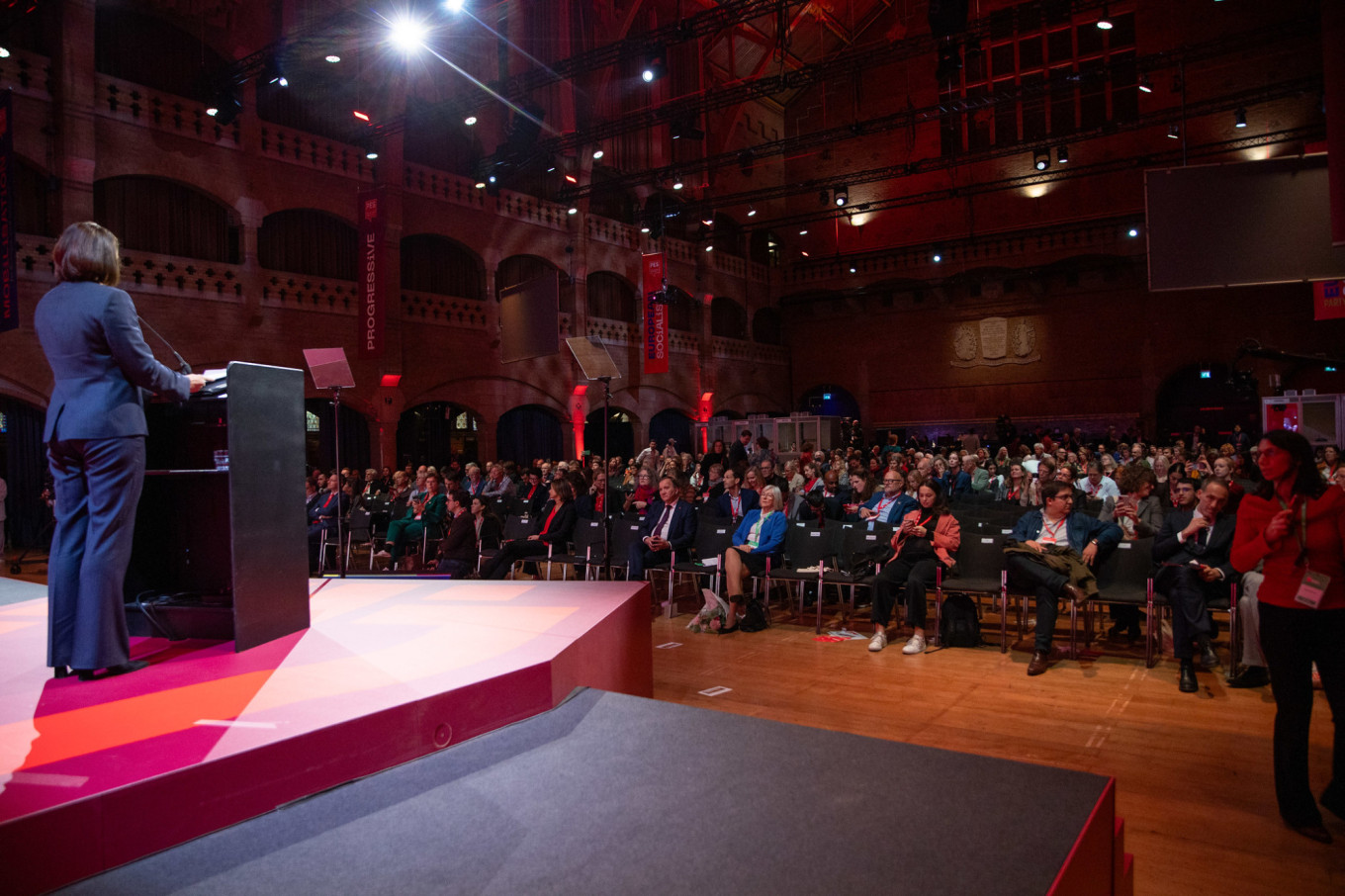 Sviatlana Tsikhanouskaya delivers a keynote speech during the Daring More Democracy panel at the PES Congress in The Netherlands.
Sviatlana Tsikhanouskaya's Office / flickr
Sviatlana Tsikhanouskaya delivers a keynote speech during the Daring More Democracy panel at the PES Congress in The Netherlands.
Sviatlana Tsikhanouskaya's Office / flickr
The deployment of nuclear weapons in Belarus is also a form of provocation. If, one day, the idea arises to use nuclear weapons, they will likely be launched from Belarusian territory. There are many such nuances. There are talks about fatigue in Europe — the war has dragged on and there is also fatigue toward Belarus. But soon this war could literally reach Europe’s doorstep if Belarus is not freed and Ukraine is not supported to victory.
Dictators have a particular mindset: they always say: ‘we can outlast them.’ In democracies, politicians change, dictators just wait. They have the resources to sacrifice lives and continue producing weapons. If a new Western leader comes to power who is less resolute than the current ones, Putin will seize that opportunity and move even closer to Europe.
We must understand that this is not a conventional war like World War II — with tanks and planes — but a hybrid one. Even when we talk about weapons, it’s not just drones, it’s also an information war. I increasingly see how the minds of democratic societies are being poisoned by propaganda. It’s easy to fall into the narrative that ‘you shouldn’t worry about Ukraine or Belarus, just enjoy your comfortable life.’ People crave simple solutions to complex problems and that weakens critical thinking. But if you don’t help Ukraine and Belarus now, you could be next. That is precisely why we appeal to politicians — because Belarus’ strategic importance for European security cannot be ignored.
I’d also like to ask about the apparent rapprochement — at least on the surface — between Lukashenko and the United States. Have the Belarusian opposition’s contacts with Washington changed in this context?
First of all, we must understand that thanks to the diplomatic efforts of Donald Trump, dozens of political prisoners were released — including my husband, Siarhei. This became possible through the efforts of both President Trump himself and his team. Of course, we are extremely grateful for that, because for us this is not just politics — it is the fate of thousands of people.
At the same time, we must recognize — and we make this clear to our American partners — that Lukashenko remains a dictator who continues to hold thousands of people as hostages. He releases dozens but jails hundreds more. He uses human lives as bargaining chips, hoping for concessions and recognition. This is pure cynicism, but it is entirely in line with the nature of a dictator.
For Lukashenko, maintaining the appearance of dialogue with the United States is crucial. He dreams of being recognized, of becoming acceptable again to the West. In the past, he has managed to restore a kind of formal status quo — after [the presidential elections of] 2006 and 2010 — but the situation today is completely different. After Russia’s full-scale invasion of Ukraine, he has no chance whatsoever of regaining legitimacy. Both the European Union and the United States, as well as Canada and the United Kingdom, have official documents declaring him illegitimate — after both the 2020 and 2025 elections. He has become an outcast dictator, a war criminal. It’s important to understand that any meeting, phone call or letter involving Lukashenko does not mean recognition — it is simply a tool of pressure. Such contacts do not give him legitimacy, but he will try to use even the slightest hint of dialogue as proof of his own strength. For him, this is a PR opportunity.
Moreover, we understand the kind of game Lukashenko is playing: in exchange for releasing some prisoners, he seeks the suspension or easing of U.S. sanctions. He will then use that reduction of pressure as an argument with the European Union — saying, ‘Look, we’re talking to the Americans; perhaps it’s time for you to engage as well.’ And we can see these signals clearly. We see how Lukashenko’s envoys and sympathizers in Europe spread these narratives — suggesting a return to ‘business as usual.’ But in Europe, there is no appetite for that, at least I don’t sense it and I’m grateful for that.
The West understands much better now who Lukashenko is. The EU’s firm and principled position plays a crucial role here. We must, of course, welcome any humanitarian steps aimed at freeing people, but we emphasize that these steps should only be the beginning. True change means the release of all political prisoners, an end to torture and repression, the restoration of the rule of law and the holding of new elections.
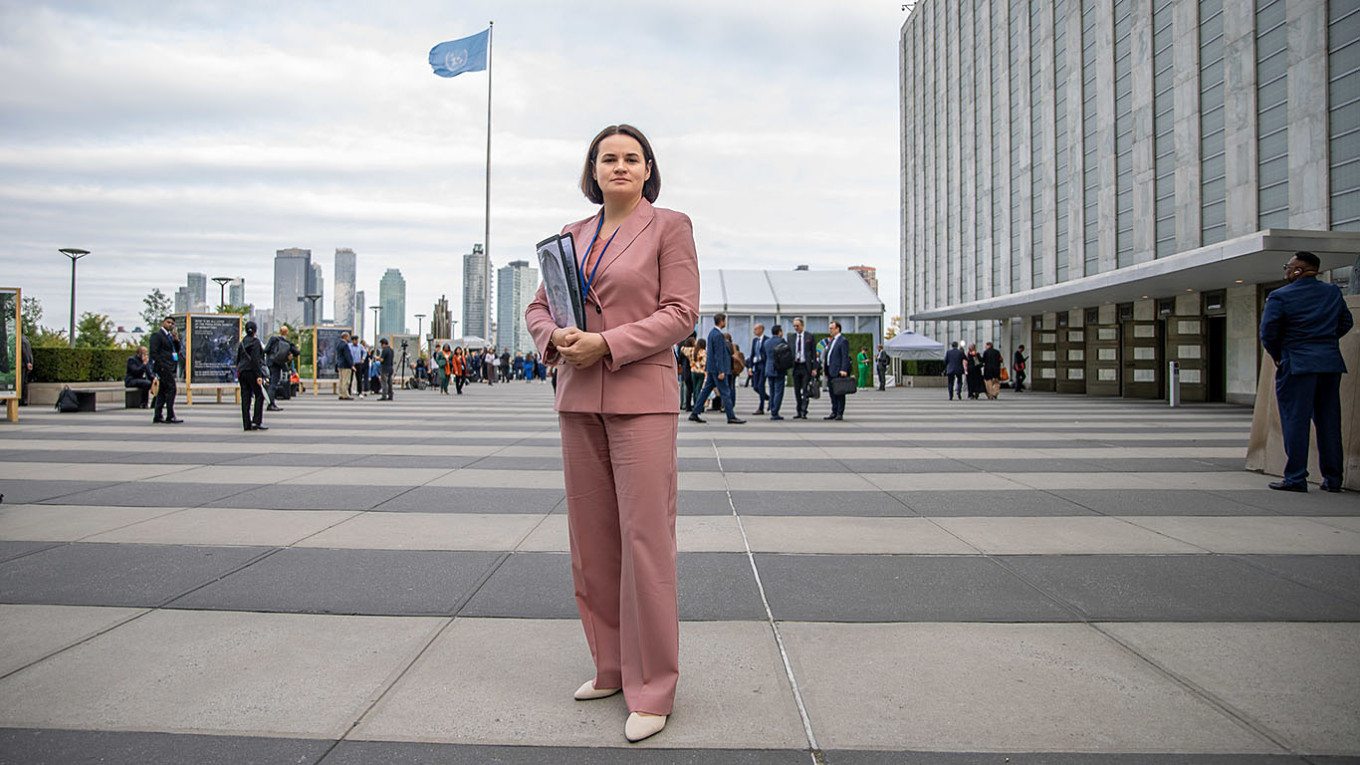 Sviatlana Tsikhanouskaya's visit to USA.
Sviatlana Tsikhanouskaya's Office / flickr
Sviatlana Tsikhanouskaya's visit to USA.
Sviatlana Tsikhanouskaya's Office / flickr
You’ve repeatedly raised the issue of documentation for Belarusians who fled the country and mentioned that nearly half a million of them could soon find themselves without valid papers. Has there been any progress on the new Belarusian passport project and do Western partners understand the urgency of the situation?
In reality, the problem of legalization and obtaining documents for Belarusians could reach a very intense scale. Since leaving the country in 2020, we have been trying to address Belarusians’ issues in every country. This became especially urgent after the regime prohibited its embassies from renewing or exchanging Belarusian passports. This has become a huge problem because people are left without documents. Seemingly simple things — like opening a bank account or obtaining a visa — become impossible.
At first, we started communicating with different countries individually to seek a legally grounded solution that would allow Belarusians to obtain documents locally without a passport. In many countries, this problem is now being addressed — Lithuania, Poland, Denmark, Germany. Approaches differ, but overall, the problem is being solved. However, this is not yet on a large scale and people’s passports are soon going to expire.
Therefore, we proposed a comprehensive solution. We developed our own document as part of this proposal, at least for European Union countries. The idea seems promising because technically, this document meets all ICAO [the International Civil Aviation Organization] standards. But political will is needed for it to be accepted. When we called it the ‘passport of the New Belarus,’ we intended it as an ID document. It does not replace residence permits, nor does it eliminate the need to legalize one’s status in each country. It is an additional ID for people who go through checks and verifications.
Here also lies a bit of a dilemma. People who would like to have such a document will have to wait until it gains legal recognition. Our European partners do not yet see a strong demand for this document, but the problem could grow. Right now, we are explaining to Belarusians that in order for the process of recognition to move forward, a significant number of recipients is needed. Of course, we also have to consider propaganda, which claims that anyone who obtains these passports will be labeled extremists or terrorists and that their property and relatives could be targeted. We see that passport projects are very sensitive for the regime. But this could also become a tool to pressure the regime to revoke its arbitrary decision not to issue passports [abroad].
Belarusians face many restrictions. There is a document we prepared together with the Luxembourg parliament called the ‘Luxembourg Solutions,’ which outlines all issues for Belarusians abroad and ways to resolve them. In other words, we do not leave these issues unattended. We are working and not leaving Belarusians in trouble.
A Message from The Moscow Times:
Dear readers,
We are facing unprecedented challenges. Russia's Prosecutor General's Office has designated The Moscow Times as an "undesirable" organization, criminalizing our work and putting our staff at risk of prosecution. This follows our earlier unjust labeling as a "foreign agent."
These actions are direct attempts to silence independent journalism in Russia. The authorities claim our work "discredits the decisions of the Russian leadership." We see things differently: we strive to provide accurate, unbiased reporting on Russia.
We, the journalists of The Moscow Times, refuse to be silenced. But to continue our work, we need your help.
Your support, no matter how small, makes a world of difference. If you can, please support us monthly starting from just $2. It's quick to set up, and every contribution makes a significant impact.
By supporting The Moscow Times, you're defending open, independent journalism in the face of repression. Thank you for standing with us.
Continue
![]()
Not ready to support today?
Remind me later.
 (1).png)
 3 months ago
22
3 months ago
22
